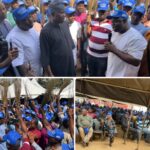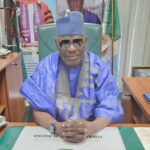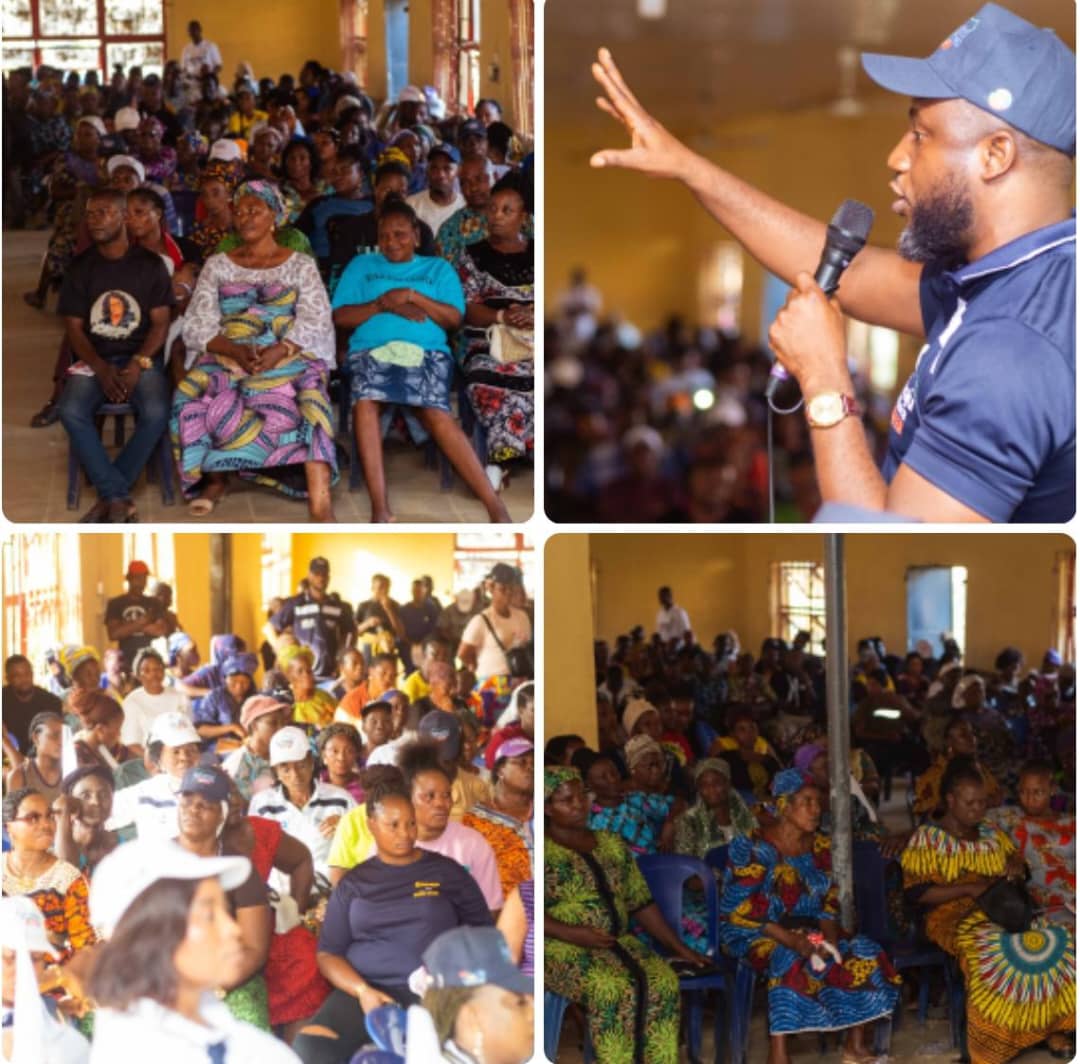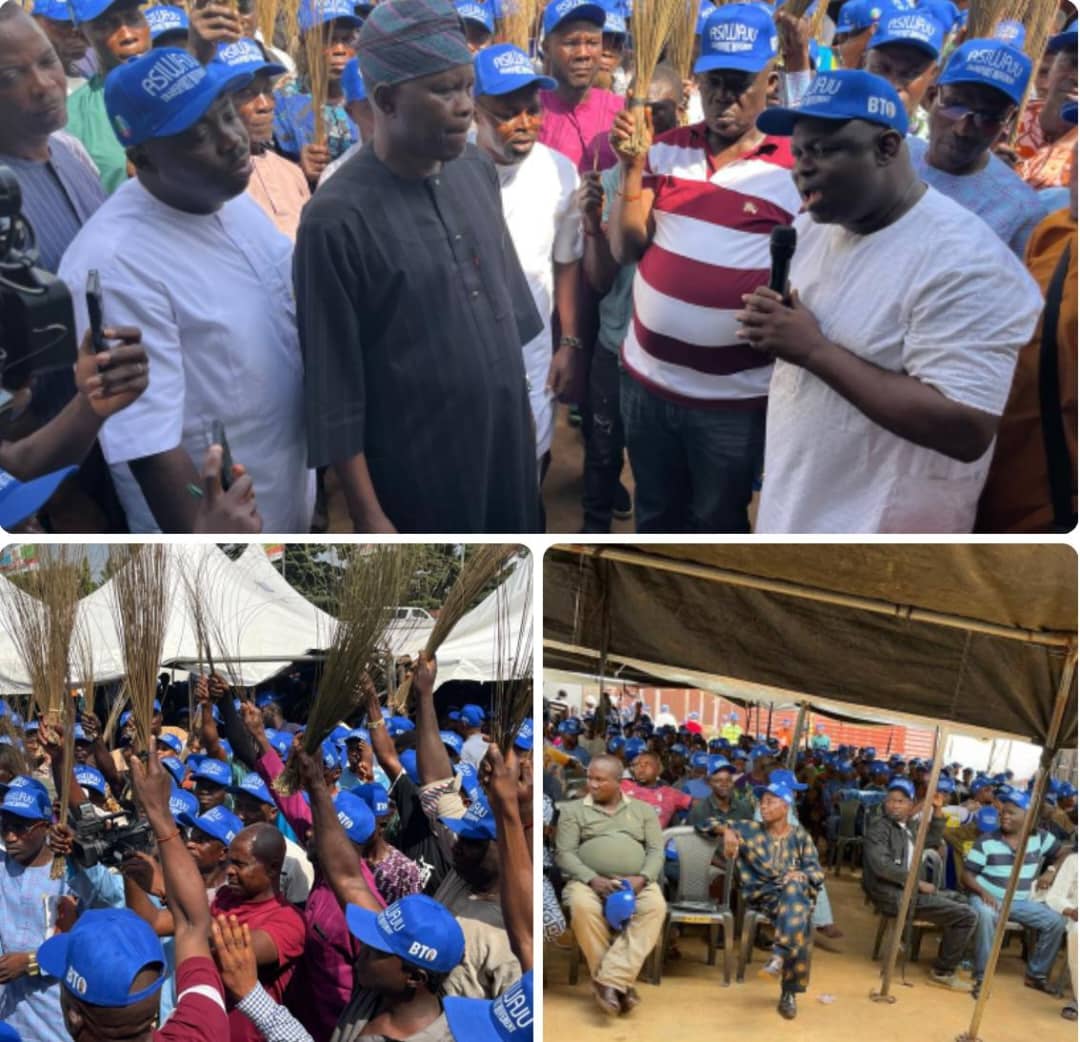Smallholder Women Farmers in Ondo state have expressed concern over hike in the rate of diseases being suffered by farmers in the State due to the use of farm chemicals also known as Agrochemicals to manage Agricultural ecosystems.
The Ondo State Coordinator, Smallholder Women Farmers Organisation of Nigeria (SWOFON), Mrs Grace Oyediji, raised the alarm at a town hall meeting of stakeholders in the agriculture sector held in Akure, the state capital.
The Town Hall meeting on Land Access, control, Utility and market linkage for small holder women farmers and young individuals on agroecology practice in ondo State was organized by the Justice Development and Peace Centre, JDPC, in collaboration with ActionAid and SWOFON.
Speaking at the meeting, Mrs Oyediji lamented that many farmers are down with different ailments and have been visiting various hospitals for medical attention due to use of farm chemicals.
“In Nigeria we have only five states who are involved in agroecology, championed by ActionAid.
“We don’t want to be visiting our clinics, our mortality centers, our state hospitals again because we discovered that all the chemicals we use to plant our crops, to treat our soil, to wipe away the insects on our farm are the root causes of different ailments battling with people.
“So we need to go into organic and when we are talking about that, we have been saying this several times in our meeting with you.
“We need to have land. That is the first thing. If there is no land, if you are just talking we continue to go from morning to night, nothing will come out of it.
“We need to look for land. We need to look for organic seeds and that is why we are talking about organic seed farms in Ondo State.
“So that if farmers want to plant, they will not go and buy the ones that are treated with chemicals. We want to be chemical free. We want to do chemical free farming.
“When we have land, we have seeds, we need markets, market linkage. Who are those that will be buying what we produce organically?
“As you know, organic farming is expensive. So the crops too must be expensive. But we have people that can do it.“
Mrs Oyediji also lamented non release of budgetry funds to Farmers, saying, “In Ondo State budgets, we have something we call agro-women initiative budgets. That budget line has been in ondo State budgets.
“It was championed by Life and Peace Development Organization and thank God we have the budget line in ondo State budgets but the only but is the release.
“We keep on asking questions. We see these millions for women farmers. We have women farmers. Where are the money? Not released.
“We told them that, Okay, we don’t want cash but use this money to buy equipment, inputs for farmers to ease our work. The money was not released.
“We want to change the narrative. We don’t want to be hearing that money was not released again.“
In his presentation, the Programme Officer, JDPC, Oluwatobi Olayemi said, “The Strategic Partnerships for Agroecology and Climate Justice in West Africa (SPAC – West Africa) is a 3-year project funded by ActionAid International (AAI) through its Transformative Impact Fund (TIF).
“This project is currently being implemented in Nigeria, Liberia and Senegal in West Africa. ActionAid Nigeria is the coordinating organization that will both supervise and facilitate the technical and financial supports across Ondo, Delta, Ebonyi, Jigawa and FCT.
“In Nigeria, it will improve food and nutrition security and enhance agroecological skills of 120,000 Small holder Women Farmers (SHWF) and Young People by facilitating access to early maturing seeds, seedlings, livestock, and poultry, thus supporting agroecological practices, indigenous seeds, and agrobiodiversity preservation for increased farm yield.”
Olayemi however highlighted various challenges facing the project to include Inadequate access to land, control and utilization, Limited access to the market especially with off takers, Knowledge gap, Limited access to finance and Climate variability (unpredicted weather patterns affecting crop cycles) among others.
In a remark, the permanent Secretary ministry of Agriculture, Mrs Foluke Daramola gave the assurance that the state government was working tirelessly to addressing various challenges facing farmers in the state.
Daramola said, “As we all know, Agriculture is the backbone of our economy, providing employment and income for millions of people, generate a quantum of our IGR, provides raw materials for our upcoming industries to mention but just few; however, despite its importance the sector faces numerous challenges, including limited to access land, linances, particularly for smallholder, women farmers and youths.
“To address these challenges, my Ministry has been working diligently to promote agro ecological friendly farming practices that enhances proper utilization of the scarce factor in agriculture to enhance optimum production via access to land with priority to the use of natural and locally available resources to improve soil fertility, encourage biodiversity and ensure a balanced ecosystem within our farming communities.
“One of the key strategies explored was the inclusion of a chapter to address the issue of access to land by small holder farmers in the newly developed agricultural policy for the State.
“In addition, most of the Donor agencies, Federal and State Governments invention programmes were designed to capture small holder women farmers and youths through the provision of input and support for land acquisition and capturing of farmers’ data across the agricultural value chains, as well as promoting community land bank management practices.
“Efforts are ongoing to improve market linkages for our smallholder farmers through cluster farming that enhances aggregation centres for each value chain of comparative advantage within identified clusters. This will boost timely offtake of farm produces and boost the economy of our farmers and the State in general.“










